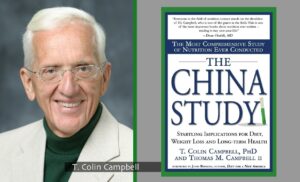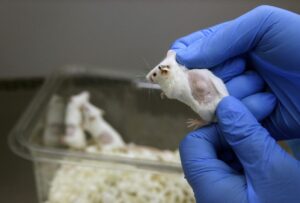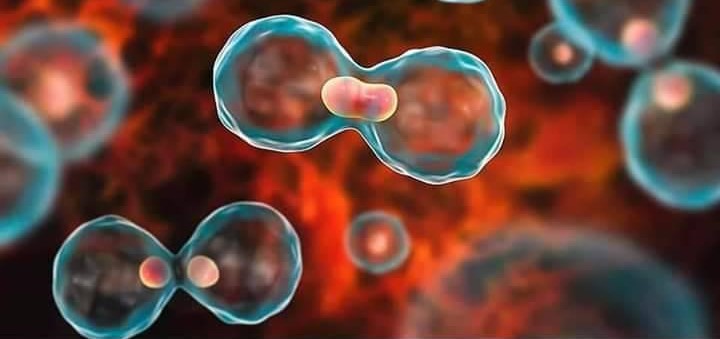To understand what causes cancer, cancer proceeds through three-stages: initiation, promotion, and progression. Initiation is when you put the seeds in the soil, Promotion is when the grass starts to grow and progression is when the grass gets completely out of control. Dietary animal protein increases the chemical bonding of carcinogens with DNA, leading to genetic mutations. In conclusion, the researchers found that high dietary protein of animal origin up-regulated mechanisms that increase cancer development and down-regulated the cell’s normal ability to reverse development. Not all proteins had this effect. What protein consistently and strongly promoted cancer? Casein, which makes up 87% of Cow's milk protein, promoted all stages of the cancer process. What type of proteins did not promote cancer, even at high levels of intake? The safe proteins were from plants, including wheat and soy.
 Before we get into What Causes Cancer, I want to introduce Who is Dr. Colin T Campbell.
Before we get into What Causes Cancer, I want to introduce Who is Dr. Colin T Campbell.
In 1998, he Received Award from the American Institute of Cancer Research, "In recognition of a lifetime of significant accomplishments in scientific research...in diet, nutrition, and cancer"
He and colleagues were honored to have received a total of seventy-four grant years of funding. He did seventy-four years' worth of funded research in less than thirty-five years. From these researches, he authored and co-authored over 350 articles.
In his own laboratory has shown in experimental animals that cancer growth can be turned on and off by nutrition, despite a very strong genetic predisposition.
He studied pre-veterinary medicine at Penn State and then attended veterinary school at the University of Georgia for a year when Cornell University beckoned with scholarship money to do graduate research in "animal nutrition."
His Ph.D. research at Cornell was devoted to finding better ways to make cows and sheep grow faster.
Much of his early career was spent working with two of the most toxic chemicals ever discovered, dioxin and aflatoxin. He initially worked at MIT, where he was assigned a chicken feed puzzle. Millions of chicks a year were dying from an unknown toxic chemical in their feed, and he has the responsibility of isolating and determining the structure of this chemical. After two and of years, he helped to discover dioxin, the most toxic chemical ever found.
After leaving MIT and taking a faculty position at Virginia Tech, he began coordinating technical assistance for a nationwide project in the Philippines working with malnourished children.
Part of the project become an investigation of the unusually high prevalence of liver cancer, usually an adult disease, in Filipino children. It was that that high consumption of aflatoxin, a mold toxin found in peanuts and corn caused this problem. Aflatoxin has been called one of the most potent carcinogens ever discovered.
For ten years our primary goal in the Philippines was to improve childhood malnutrition among the poor, a project funded by the U.S. Agency for International Development. Eventually, 110 nutrition "self-help" education centers around the country were established.
The aim of these efforts in the Philippines was simple: make sure that children were getting as much protein as possible. It was widely thought that much of the childhood malnutrition in the world was caused by a lack of protein, especially from animal-based foods. Universities and governments around the world we're working to alleviate a perceived "protein gap" in the developing world.
In this project, however, He Uncovered a Dark secret. Children who ate the highest protein diets were the ones most like to get liver cancer! They were the children of the wealthiest families.

He then noticed research from India that had some very provocative, relevant findings. Indian Researchers had studied two groups of rats. In one group, they administered the cancer-causing aflatoxin, then fed a diet that was composed of 20% protein, a level near what many of us consume in the West. In another group, they administered the same amount of aflatoxin, but then fed a diet that was only composed of 5% protein. Incredibly, every single animal that consumed the 20% protein diet had evidence of liver cancer, and every single animal that consumed a 5% protein diet avoided liver cancer. It was a 100 to 0 score, leaving no doubt that nutrition trumped chemical carcinogens, even very potent carcinogens, in controlling cancer.
This information countered everything he had been taught. It was heretical to say that protein wasn't healthy, let alone say it promoted cancer. It was a defining moment in his career. Questioning protei and animal-based foods, in general, ran the risk of being labeled a heretic, even if it passed a test of "good-science". So, faced with a difficult decision, He decided to start an in-depth laboratory program that would investigate the role of nutrition, especially protein, in the development of cancer. His colleagues and he were cautious in framing out hypotheses, rigorous methodology, and conservative in interpreting the findings.
He chose to do this research at a very basic science level, studying the biochemical details of cancer formation. It was important to understand not only where but also how the protein might promote cancer. It was the best of all worlds. By carefully following the rules of good science, He was able to study a provocative topic without provoking knee-jerk responses that arose with radical ideas. Eventually, this research became handsomely funded for twenty-seven years by the best-reviewed and most competitive funding sources (mostly the National Institutes of Health (NIH), the American Cancer Society, and the American Institute of Cancer Research). Then the results were reviewed (a second time) for publication in many of the best scientific journals.
What His Team found was shocking. Low-protein diets inhibited the initiation of cancer by aflatoxin, regardless of how much of this carcinogen was administered to these animals. After cancer initiation was completed, low-protein diets dramatically blocked subsequent cancer growth. In other words, the cancer-producing effects of this highly carcinogenic chemical were rendered insignificant by a low-protein diet. In fact, dietary protein proved to be so powerful in this effect that they could turn on and turn off cancer growth simply by changing the level consumed.
Furthermore, the amounts of protein being fed where those that we humans routinely consume. They didn't use extraordinary levels, as is so often the case in carcinogen studies.
But that's not all. We found that not all proteins had this effect. What protein consistently and strongly promoted cancer? Casein, which makes up 87% of Cow's milk protein, promoted all stages of the cancer process. What type of proteins did not promote cancer, even at high levels of intake? The safe proteins were from plants, including wheat and soy.
(Expert from the Book "The China Study")

